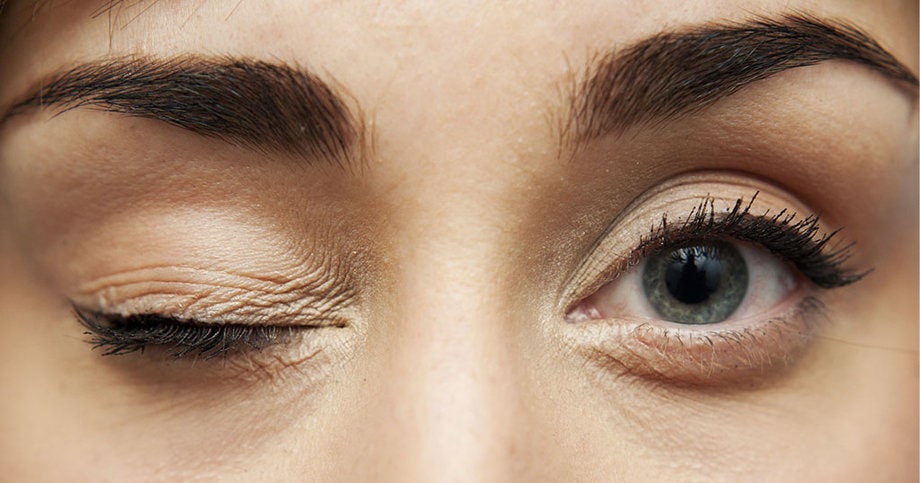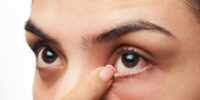How to Recognize and Manage Eye Twitching

Eye twitching, or eyelid myokymia, is a common condition characterized by involuntary spasms of the eyelid muscles. This article aims to provide a comprehensive overview of eye twitching, including its causes, symptoms, diagnosis, treatment options, and prevention strategies.
By adopting an objective and impersonal approach, this article seeks to offer evidence-based information to help individuals recognize and manage eye twitching effectively. Understanding the underlying mechanisms of this condition is crucial for healthcare professionals and individuals seeking to alleviate its bothersome symptoms.
Key Takeaways
- Excessive caffeine consumption, stress-related factors, eye strain, and muscle tension can cause or trigger eye twitching.
- Eye twitching is characterized by involuntary contractions of eyelid muscles, a twitching sensation, and sporadic blinking movements. It can affect individuals of all ages.
- Diagnosis of eye twitching involves a comprehensive evaluation of medical history, a thorough physical examination, and observation of involuntary eyelid movements. Additional diagnostic tests may be conducted if necessary.
- Treatment options for eye twitching include natural remedies and lifestyle modifications, stress reduction techniques, adequate sleep and avoiding triggers, warm compresses and relaxation techniques, and medication options like anticonvulsants, muscle relaxants, and botulinum toxin injections. Prevention and management strategies include stress management, regular exercise, sufficient sleep and rest, limiting caffeine, alcohol, and tobacco consumption, and maintaining a balanced diet and regular breaks from eye-straining activities.
Causes of Eye Twitching
One common cause of eye twitching is excessive caffeine consumption. Eye twitching, also known as eyelid twitching or myokymia, is a repetitive, involuntary spasm of the eyelid muscles. It is often a temporary condition and is generally harmless. However, it can be bothersome and may interfere with daily activities.
Stress-related factors and eye strain are also known to contribute to eye twitching. Stress can lead to heightened muscle tension, including the muscles surrounding the eyes, which can trigger twitching. Eye strain, caused by prolonged periods of reading, using digital devices, or focusing on close objects, can also lead to eye twitching.
Managing stress levels, getting enough rest, and practicing good eye hygiene can help alleviate eye twitching associated with these factors.
Symptoms of Eye Twitching
Common indicators of this ocular condition include repetitive involuntary contractions of the eyelid muscles, an uncontrollable twitching sensation, and sporadic blinking movements.
Eye twitching, also known as eyelid myokymia, is a common condition that affects individuals of all ages. While the exact causes and triggers of eye twitching are not fully understood, certain factors have been identified. These include stress, fatigue, excessive caffeine intake, eye strain, dry eyes, allergies, and certain medications.
Identifying and addressing these triggers can help manage and reduce the frequency of eye twitching episodes. In addition to medical interventions, there are various home remedies and self-care practices that individuals can employ. These include getting enough sleep, reducing stress levels through relaxation techniques, applying warm compresses to the affected eye, and avoiding excessive caffeine consumption.
It is important to note that if eye twitching persists or worsens, it is advisable to seek medical attention for further evaluation and treatment.
Diagnosis of Eye Twitching
Diagnosing eyelid myokymia involves a comprehensive evaluation of the patient’s medical history, a thorough physical examination, and, if necessary, additional diagnostic tests.
The medical history assessment includes gathering information about the patient’s overall health, previous eye conditions, and any relevant medications or environmental factors that may contribute to ocular muscle spasms.
During the physical examination, the healthcare professional will closely observe the patient’s involuntary eyelid movements and assess their frequency, duration, and severity. Additionally, the patient’s visual acuity, eye alignment, and eye muscle function will be evaluated.
In some cases, additional diagnostic tests such as electromyography or blood tests may be conducted to rule out underlying causes or confirm the diagnosis.
Overall, a comprehensive approach is necessary to accurately diagnose eyelid myokymia and differentiate it from other eye conditions that may present with similar symptoms.
Treatment Options for Eye Twitching
Treatment options for eyelid myokymia aim to alleviate symptoms and improve the quality of life for affected individuals.
Natural remedies can be considered as a first-line approach in managing eyelid myokymia. These include lifestyle modifications such as reducing stress, getting enough sleep, and avoiding triggers like caffeine and alcohol. Applying warm compresses to the affected area and practicing relaxation techniques may also provide some relief.
In cases where natural remedies are ineffective or symptoms are severe, medication options may be recommended. These may include medications such as anticonvulsants, muscle relaxants, or botulinum toxin injections. Anticonvulsants like gabapentin and carbamazepine have been found to reduce the frequency and severity of eyelid twitching. Muscle relaxants such as baclofen may also help relax the muscles and alleviate symptoms.
Botulinum toxin injections are another option that can provide temporary relief by blocking the nerve signals responsible for eyelid twitching.
Ultimately, the choice of treatment depends on the severity of symptoms and the individual’s response to different approaches.
Prevention and Management of Eye Twitching
Prevention and management strategies for eyelid myokymia involve implementing lifestyle modifications and utilizing various therapeutic interventions. To effectively prevent and manage eye twitching, individuals can consider the following strategies:
- Stress management:
- Practicing relaxation techniques such as deep breathing, meditation, or yoga.
- Engaging in regular exercise to reduce stress levels.
- Ensuring sufficient sleep and rest to promote overall well-being.
- Lifestyle changes:
- Limiting the consumption of caffeine, alcohol, and tobacco, as they can exacerbate eye twitching.
- Maintaining a balanced diet rich in vitamins and minerals.
- Taking regular breaks from activities that strain the eyes, such as staring at screens for prolonged periods.
Frequently Asked Questions
Can Eye Twitching Be a Sign of a Serious Underlying Medical Condition?
Eye twitching can be a sign of serious underlying medical conditions, such as neurological disorders and vision problems. It is important to consider these possibilities when evaluating the potential causes of eye twitching.
Is Eye Twitching More Common in Certain Age Groups or Demographics?
Age related factors and potential causes of eye twitching have been studied extensively. Research has shown that eye twitching is more common in certain age groups or demographics, indicating a possible correlation between age and the occurrence of this condition.
Are There Any Specific Medications That Can Trigger Eye Twitching?
Medication side effects should be considered as potential triggers for eye twitching. It is important to note that certain medications, although effective for their intended purposes, may have unintended consequences such as eye twitching. Alternative treatments may be explored in such cases.
Can Stress and Anxiety Worsen Eye Twitching Symptoms?
Stress related triggers, such as anxiety, may exacerbate eye twitching symptoms. Coping strategies, such as relaxation techniques or stress management techniques, may help alleviate symptoms. Further research is needed to fully understand the relationship between stress and eye twitching.
How Long Does Eye Twitching Typically Last Before Going Away on Its Own?
The duration of eye twitching varies, with most cases resolving on their own within a few days to a few weeks. Natural remedies for eye twitching, such as getting adequate rest and reducing stress, may help alleviate symptoms.








